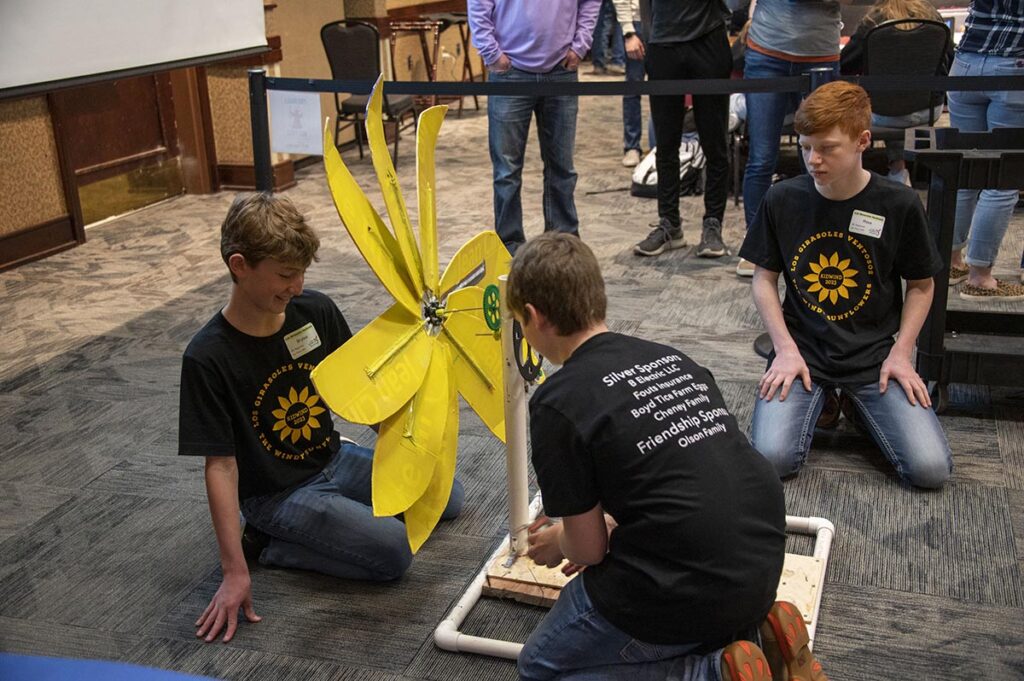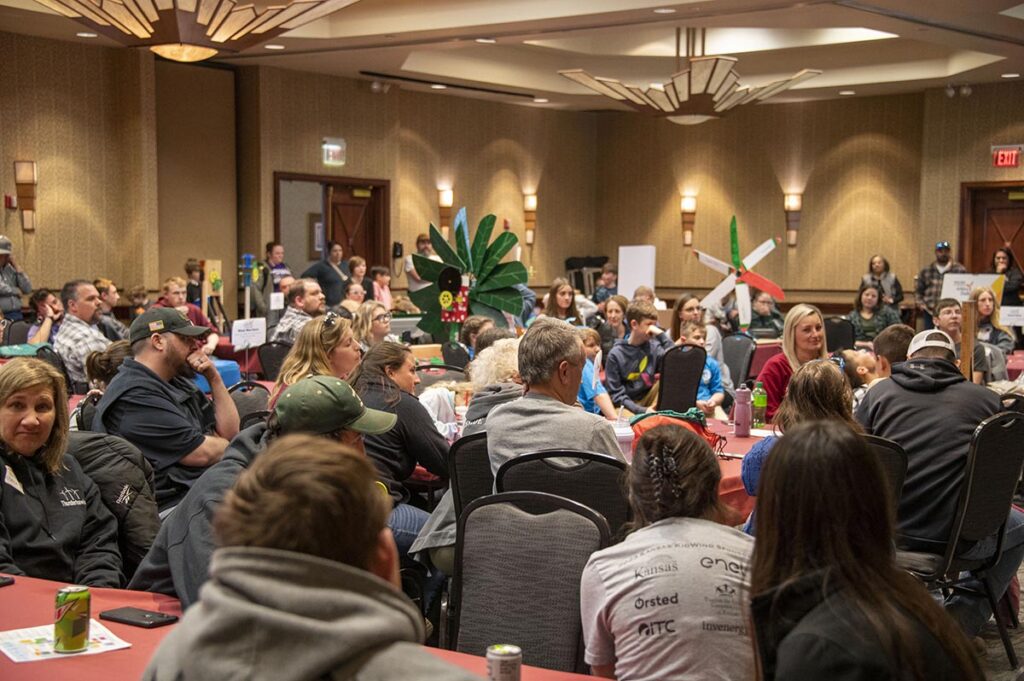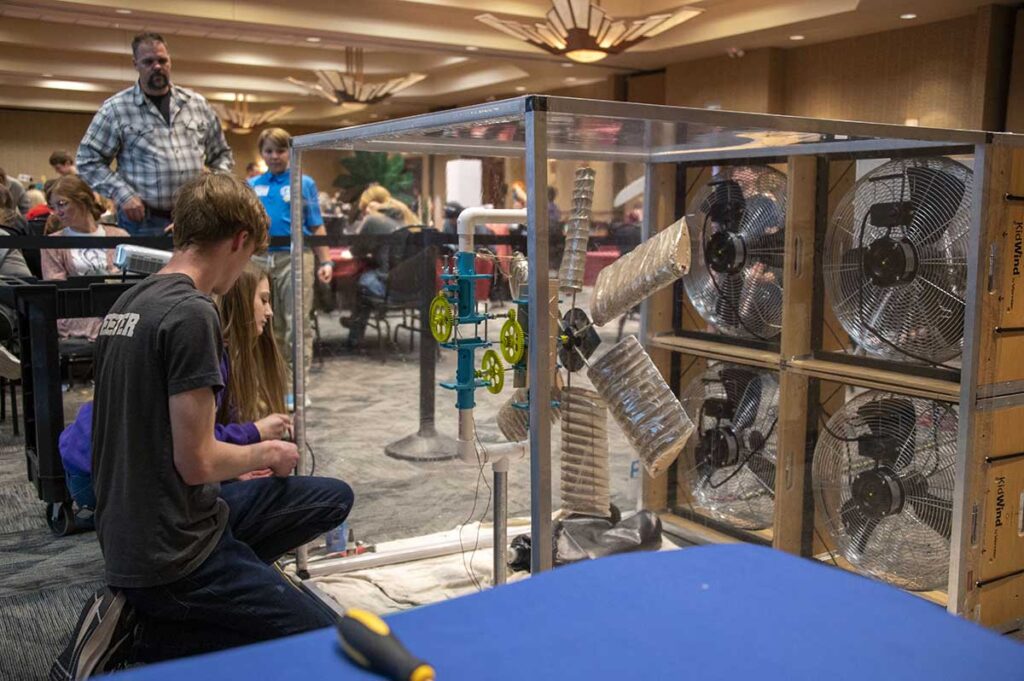
Electric cooperatives in Kansas are helping the next generation learn more about renewable energy through sponsorship and support of the KidWind Challenge, in which students hone their science, technology, engineering and mathematics skills by building small wind turbines.
The Kansas Corporation Commission supports the KidWind Challenge, which is managed by Kansas State University’s Kansas Energy Program, with teacher training, materials and coordination of statewide activities. Electric co-ops assist with some of the expenses that are not covered by the state.
“We’re seeing entire schools embrace this program, and we’re reaching so many young minds, which hopefully will encourage participants to consider careers in science or engineering,” said Shana Read, director of education and training for Kansas Electric Cooperatives. The state’s Touchstone Energy® cooperatives have helped fund local KidWind projects and provided technical support for participating middle school and high school students.
Working with Kansas State University, student teams have access to 3D printers and portable wind tunnels for testing and refining their projects, including some that have taken more than a year to develop.

Six regional competitions involving about 400 students from 55 schools were held in the state earlier this year. The statewide finals, held in Topeka on March 25, included 22 teams from 12 middle schools and 10 high schools. Six teams—the top three middle school teams and the top three high school teams—were invited to compete in the national competition at the University of Colorado Boulder in mid-May.
“We learned quite a bit about gear ratios. There’s a lot of math, and we have to determine what is more efficient,” said Charlie Burke, a high school student from Beloit.
During the tournament, judges scored the teams on various factors, including blade design and power output, and quizzed students about their projects.
“We learned to work together and communicate better,” said Zoey Schletzbaum, a student from STEM Magnet School in Hutchinson, adding that the project required students to recognize their individual strengths. “When we don’t communicate, it’s just chaos.”
Co-op support of KidWind in Kansas has been widespread, with a helping hand from the statewide association and direct sponsorships by the state’s 20 Touchstone Energy cooperatives. The Touchstone Energy co-ops funded development of another mobile wind tunnel, enabling more schools to offer the program to their students.

Nearly a dozen co-op staff from around the state have served as judges or provided support at the regional events. Co-op involvement has also included facilitating a day at the state capitol, where the students display and demonstrate their projects for lawmakers.
At last year’s Kansas Capitol event on Sept. 21, 2022, Lt. Gov. David Toland had scheduled five minutes with each winning team for photo opportunities, but he spent about 45 minutes with each of the three groups, said Read. “He was so fascinated with their projects and how enthusiastic and knowledgeable the kids were.”
The KidWind initiative operates much like FFA/4H programs, providing opportunities to develop interests that could influence future educational and career decisions for the students. In addition to the teams represented at the state finals, hundreds of younger students and their families turned out to support the event and hear from participants.
“We learned how wind energy works and how gear ratios work. We learned how to do more stuff and how to work as a team,” said Callen Bogard, an elementary school student from Paola. “I now want to be an electrical engineer. Challenges are fun and I like problem solving.”
Derrill Holly is a staff writer for NRECA.